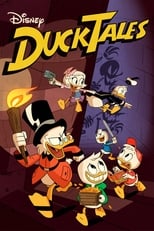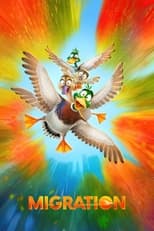jarshua's Reviews
‘DuckTales’ is an excellent series. In the first episode of the third season, one character is briefly shown to have two fathers, but aside from that it’s just pure fun and heartwarming.
Created: 03-12-2024
Woke but good
‘The Owl House’’s lesbian relationship between the bisexual teenage girl main character and another girl is a large part of the narrative, in addition with a less-prominent relationship with a non-binary person. The only prominent heterosexual relationships are 1) between a pansexual girl (who has two fathers) and a bisexual boy (these orientations aren’t mentioned on-screen, but were stated by the creator) and 2) a strained marriage with three children between a woman who is a secondary antagonist, and a man who leaves her for another man after learning his wife is evil. The protagonist has a loving relationship with her single mother, however.
Despite the very prominent LGBT+ themes, the show is engaging and of good quality. The mystery and worldbuilding are interesting, the characters are well-written with good arcs, and the artstyle and animation are appealing.
Created: 03-05-2024
Funny duck movie
‘Migration’ is just a fun time. The main family of mallards love each other, and although they occasionally have fights, they work together and never leave each other behind. And no gay ducks!
Created: 03-05-2024
‘Avatar: The Last Airbender,’ in the year of 2005, is non-woke. Its four Asian culture–inspired nations are divided by borders and ideologies, not the color of their skin. There are strong male and female role models.
The series’ closest thing to “wokeness” is its discussion of gender issues, but in the year of 2005, it’s actually handled competently in a way that would likely be much more highly criticized in modern U.S. culture.
One main character, Sokka, starts the series as decently misogynistic, often irritating his sister, Katara (however, he’s still characterized as a good person). In the third episode, the main group travels to Kyoshi Island, a location dedicated to the previous incarnation of the series’ “Avatar” and a symbol of both strength and femininity. They also meet the Kyoshi Warriors, a team of young women who mimick Kyoshi’s manner of dress and are skilled in combat. Sokka, who calls himself the best fighter in his village, quickly loses a fight with the Warriors’ leader, Suki, due to his untrained fighting style. He asks Suki to train him (which involves crossdressing, played exclusively for comedy), and is soon able to beat Suki after becoming more disciplined. In the climax of the episode, both characters are shown to be good fighters. Sokka apologizes for treating Suki “like a girl” instead of “like a warrior”; she kisses him on the cheek and replies, “I *am* a warrior—but I’m a *girl*, too.”
At the end of the first season, Katara also struggles with a master who refuses to teach her waterbending (psychically controlling water) for combat, as their culture traditionally teaches males combat and females healing instead. By the end, she proves herself as a skilled waterbender and the master is willing to teach her, but her ability to heal with water also continues to be important throughout the series. Katara is not only a good fighter, but also is sympathetic, sweet, and sensitive.
In other words, ‘The Last Airbender’ teaches girls that they don’t have to sacrifice femininity in order to be who they want to be—a type of message largely missing in contemporary popular culture and media.
‘Avatar: The Last Airbender’ is phenomenal and deserves a watch—for so many reasons other than (but including) its messaging.
Created: 03-05-2024





